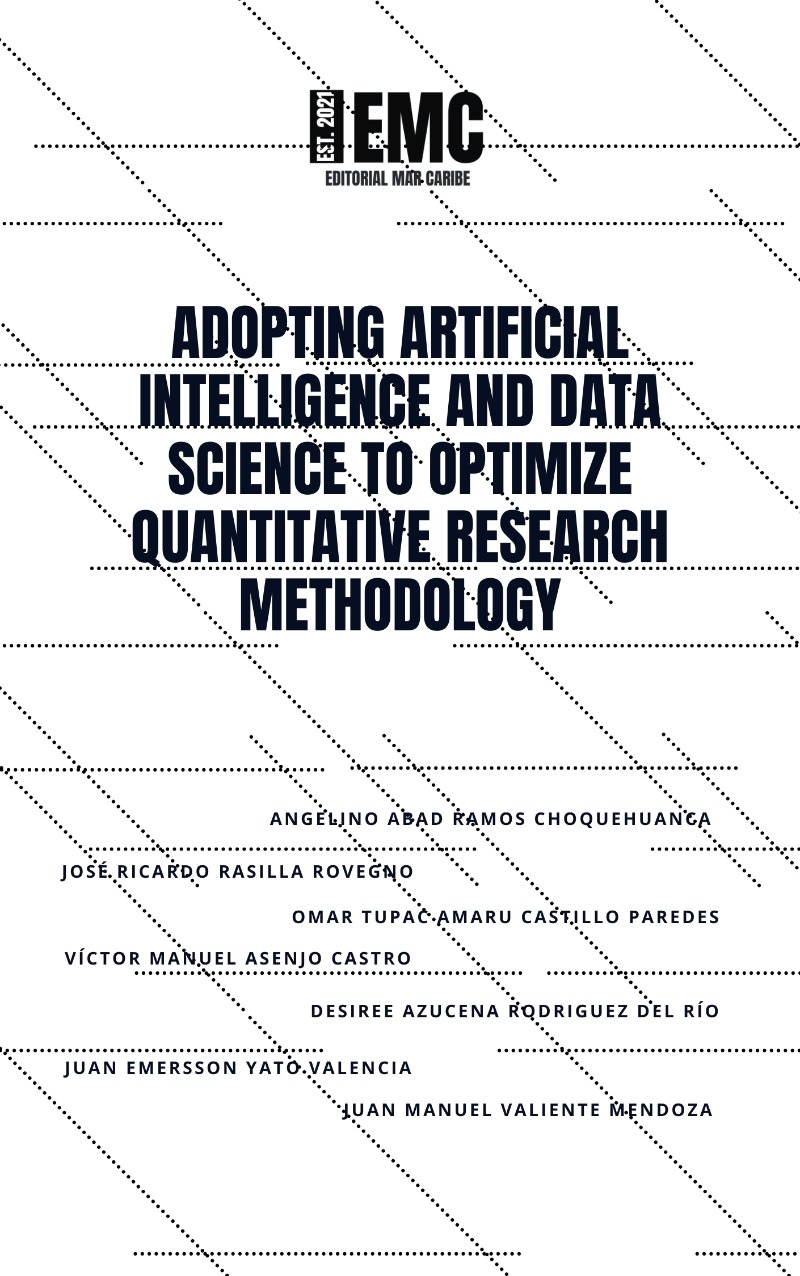
Adopting artificial intelligence and data science to optimize quantitative research methodology
Rasilla Rovegno, José Ricardo
Castillo Paredes, Omar Tupac Amaru
Asenjo Castro, Víctor Manuel
Rodriguez Del Río, Desiree Azucena
Yato Valencia, Juan Emersson
Valiente Mendoza, Juan Manuel
Editorial:Editorial Mar Caribe
Materia:Inteligencia artificial
Clasificación:Análisis de datos: generalidades
Público objetivo:Profesional / académico
Publicado:2025-08-30
Número de edición:1
Número de páginas:0
Tamaño:5Mb
Precio:$860
Soporte:Digital
Formato:Pdf (.pdf)
Idioma:Inglés
Libros relacionados
Intelligent automation, AI systems, and digital engineering in oil–gas–chemical industries - Khang, Alex; Abdullayev, Vugar; Gadirova, Elmina; Hahanov, Vladimir
AI and machine learning in healthcare and biomedical engineering - Abdullayev, Vugar
AI and Machine Learning in Healthcare and Biomedical Engineering - Abdullayev, Vugar
La Revolución que está cambiando todo inteligencia artificial - Spano, Silvana
Reseña
AI and modern data‑science methods extend traditional quantitative research by: scaling to high‑dimensional and multimodal data, offering flexible nonlinear predictive models, enabling automated feature extraction from text/voice/image, and embedding uncertainty quantification and prior knowledge via Bayesian methods. Bayesian approaches, in particular, shift emphasis from dichotomous hypothesis testing to estimation with full posterior uncertainty and principled model comparison, enhancing the “New Statistics” goals of estimation, meta‑analysis and power reasoning. Integrating AI and data‑science methods into quantitative research methodology delivers scalability, richer feature extraction, and powerful predictive tools; coupling these with Bayesian frameworks provides principled uncertainty quantification, model comparison and the ability to incorporate domain knowledge key for robust inference and reproducibility. For domains such as education and the humanities, rigorous interpretability, triangulation with qualitative evidence, and careful ethical scrutiny are essential to preserve meaning and social value of results.




